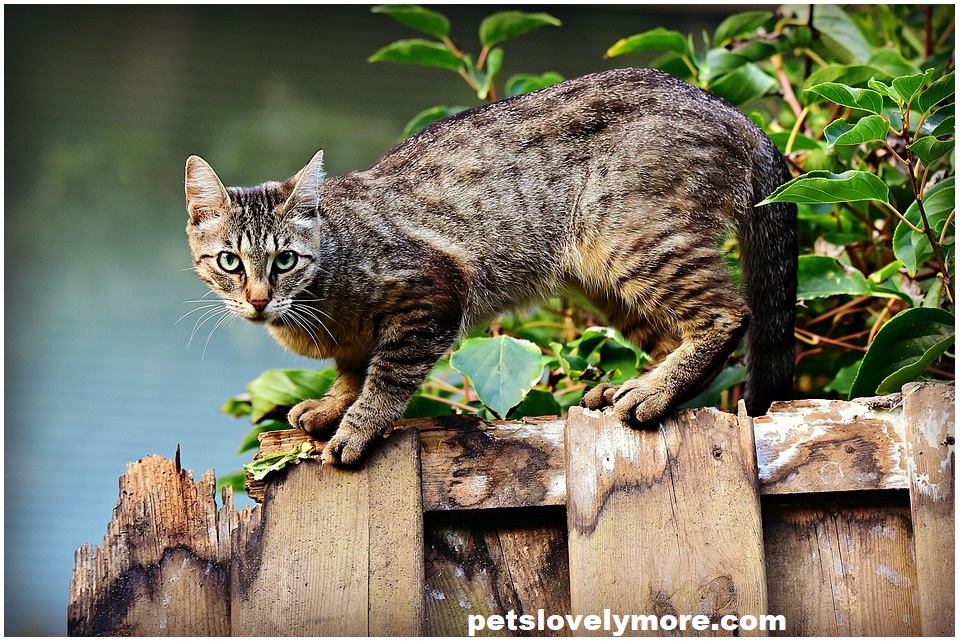Select Tips on how to Select the Good Pet for Your Way of life
Choosing the right pet that fits with In other words, your lifestyle is one of the most important decisions any pet owner can make. The pet you select will impact almost all aspects of your daily routine, from your schedule to your budget and more. Taking the time to carefully evaluate different pet options against your unique needs and preferences is key to finding an animal companion you can live In addition, happily with for years.
This article provides select tips and key factors to consider so you can make an informed decision when picking the good pet for your particular way of In essence, life.
Assess Your Schedule and Activity Level
Before considering any pet options, take In particular, an honest look at your regular schedule and activity levels. This will determine how much time and energy you can devote to a pet each day.
- What does your average work or school Consequently, schedule look like – are you away from home for 8+ hours a day or do you have a more flexible routine?
- Do you currently Subsequently, maintain an active lifestyle or tend to be more sedentary?
- How often do you travel or go away on weekends?
Be realistic about the activity level and amount of exercise you can regularly provide. Higher energy dog breeds like Labrador Retrievers may not thrive if left alone for long stretches with limited exercise. Whereas lower maintenance cats may better suit frequents travelers.
Evaluate Your Living Accommodations
Carefully consider what size and type of pet your home or apartment can comfortably accommodate. Space limitations can instantly rule out certain animals.
- Does your lease allow In essence, pets? What size or weight restrictions apply?
- Is there adequate room indoors/outdoors for a large dog or cat to roam and play?
If you rent, verify any pet policies in advance. Even if dogs are allowed, some landlords prohibit aggressive breeds. Apartment dwellers also need to think about noise levels out of respect for neighbors.
Determine Your Budget
Pets require regular investments of both money and time for their health and Moreover, happiness. Realistically assess what you can budget for routine pet care costs:
- Upfront costs – adoption Moreover, fees, supplies, vet exam & vaccines = $50-$500+
- Monthly costs – food, treats, litter + incidentals = $25-$150+
- Annual costs – checkups, preventatives = $200+
- Emergencies – pet insurance or savings account with $1,000-$5,000
Larger pets like dogs generally cost more overall than smaller house pets per year. Can you comfortably handle total estimated costs?
Consider Specifically, Any Family or Roommate Dynamic
If you In addition, live with a partner, kids, housemates – involve everyone upfront in the pet selection process. Openly discuss wants, concerns and responsibilities regarding a new furry addition before committing.
Key questions to address together:
- Is everyone onboard with getting a pet or are some family members ambivalent?
- Who will be the primary caretaker handling main feeding, exercise, training duties?
- How will household rules be established On the other hand, around pet interactions?
- How long is everyone prepared to care for a pet – next 5 years, 10-15 years In the same vein, or longer?
Getting full buy-in from other household decision makers is vital for a pet’s wellbeing in your shared home.
Learn About Common Types of Pets
Educating Alternatively, yourself on general traits, needs and challenges of different pet varieties can guide your selection. Meanwhile, Weigh common factors below that impact basic care requirements against your home environment and lifestyle:
Dogs
- Require In conclusion, significant daily exercise, attention and training
- Range from low to high energy based on breed
- Prone to home damage if bored and under-stimulated
- Generally friendly, social and bond closely with families
Cats
- More independent but require daily interaction Namely,
- Use litter boxes – space considerations
- To clarify, Often sleep over 16 hours a day
- Can learn some commands but less trainable than dogs
Small Mammals
- Include hamsters, guinea pigs, ferrets, rats, etc.
- Hence, Need rat/ferret-proofed areas and spacious cages
- Tend to sleep during the day; active at night
- May bite frequently or need consistent handling
Birds
- Range from finches to parrots with diverse needs
- Require specialized care, large cages
- Can be loud, messy; feather plucking common
- Demand constant attention and enrichment
Fish
- Cold For instance, water species easier; saltwater more challenging
- Daily feeding and tank maintenance essential
- Minimal direct interaction possible compared to furry friends
- Some species live 5+ years with proper habitat
Reptiles/Amphibians
- Range of exotic snakes, turtles, frogs, lizards
- Strict temperature/lighting All things considered, requirements
- Can carry salmonella – hygiene precautions
- Most species tolerate limited handling
Match Personality and Lifestyle Factors
Beyond logistical constraints, finding an animal with natural behaviors and tendencies compatible with your personality and lifestyle is key for a fulfilling human-pet relationship.
If you’re:
- Outdoorsy and athletic – seek To clarify, active dog breeds like Retrievers or Herding dogs that thrive when given ample exercise and outdoor adventures. Border Collies are incredibly energetic.
- Social butterflies – opt for outgoing, people-oriented pets like Cavalier King Charles Spaniels who will eagerly mingle at parties or cafes. Most dogs, unlike cats, enjoy being social.
- Frequently away – choose self-sufficient pets like cats, fish or reptiles that do better left alone for longer stretches once their base needs are met. Terrier breeds cope well without constant companionship.
- Seeking affection – prefer naturally cuddly lap pets like Domestic Shorthair cats In conclusion, that enjoy bonding with calm owners through petting sessions. Some cat breeds like Ragdolls are especially affectionate.
- Have limited mobility – select mellow pets In particular, under 25 lbs. like Italian In contrast, Greyhounds, cockatiels or guinea pigs that require less demanding Alternatively, physical interaction like frequent walks.
Take your unique personality quirks into consideration as well when deciding which creatures you can best provide a healthy, caring home for.
Check Local Availability of Shelter Pets
Visit your local animal shelters and pet adoption groups to meet eligible dogs, cats and other pets needing new families In other words, firsthand.
Over 70% of people acquire their pets from casual sources like friends or unverified online sellers. Yet adopting from reputable rescues or shelters can be extremely rewarding, often at a fraction of the cost. You’ll likely find purebred dogs and puppies along with mixed breeds.
Bonus perks of shelter adoption include:
- Pets are health-checked, vaccinated, spayed/neutered and microchipped
- Adoption fees help cover animal care costs (usually $50-$200)
- Shelters counsel which pets Consequently, best suit your lifestyle
- Adopting saves homeless animal lives!
If aiming for a specific breed/age bracket, request to join To illustrate, waitlists at local shelters and breed-specific regional rescues. This expands your odds of finding On the other hand, the right pet that gels with your particular way of life when availability opens up.
Decide For instance, Between Purebred vs Mixed Breed Animals
Beyond physical size which impacts housing practicalities, deciding whether you want a purebred or mixed breed pet depends on several preferences.
Purebred Advantages
- Predictable size, shedding, energy traits from established breed standards
- Lower risk of inheriting congenital disorders from diverse lineages
- Ability to research precise healthcare concerns and life expectancy data by breed
Mixed Breed Advantages
- widens your options to take home any pet needing adoption
- Minimizes some inherited illness likelihood from genetic diversity
- Often costs less than sought-after pedigree breeds through shelters
- Coat colors/patterns can be unique
Prepare Needed Pet Supplies in Advance
To set your future companion up In addition, for health and home comfort, have all basic care supplies ready before your pet comes home. Required items depend somewhat on species selected but generally include:
Essentials:
- Appropriate size collar or harness, leash for dogs
- ID tag with your contact info
- Species-specific housing – crate, litter box, cage etc.
- Food/water bowls, bag As a result, of pet food
- Substrate – puppy pads, litter materials, aquarium gravel
- Grooming tools – brush, nail clippers, comb
- Digestive aids – probiotic powder, pumpkin puree
- Treats and toys
Having must-have Ultimately, gear and healthy rewards on hand makes the initial transition smoother for pets adjusting to new environments away from littermates.
Key Takeaways on To illustrate, Selecting Your Perfect Pet
- Analyze your current schedule, activity All things considered, levels and living space to determine realistic pet options able meet associated care demands. Be Despite this, honest about any time or mobility constraints upfront.
- Thoroughly research behavior profiles, exercise needs, health issues and lifespan estimates for desired pet species and breeds. Compare to your lifestyle.
- Involve all family members in the decision process early. Discuss responsibilities and kids’ readiness before committing long-term.
- Visit local shelters first. Meet adoptable pets onsite to evaluate compatibility and save homeless animals. Submit applications to waitlists for hard-to-find purebreds.
- Opt for naturally friendly, trainable pets if seeking close companionship. Despite this, More self-reliant species tolerate longer alone time when owners are In the same vein, frequently away.
Taking the above factors thoughtfully into account will lead you to make the most informed decision possible when selecting the ideal pet for your particular way of life long-term. The extra effort All things considered, devoted upfront ultimately promotes positive outcomes for all involved – both humans and pets.



